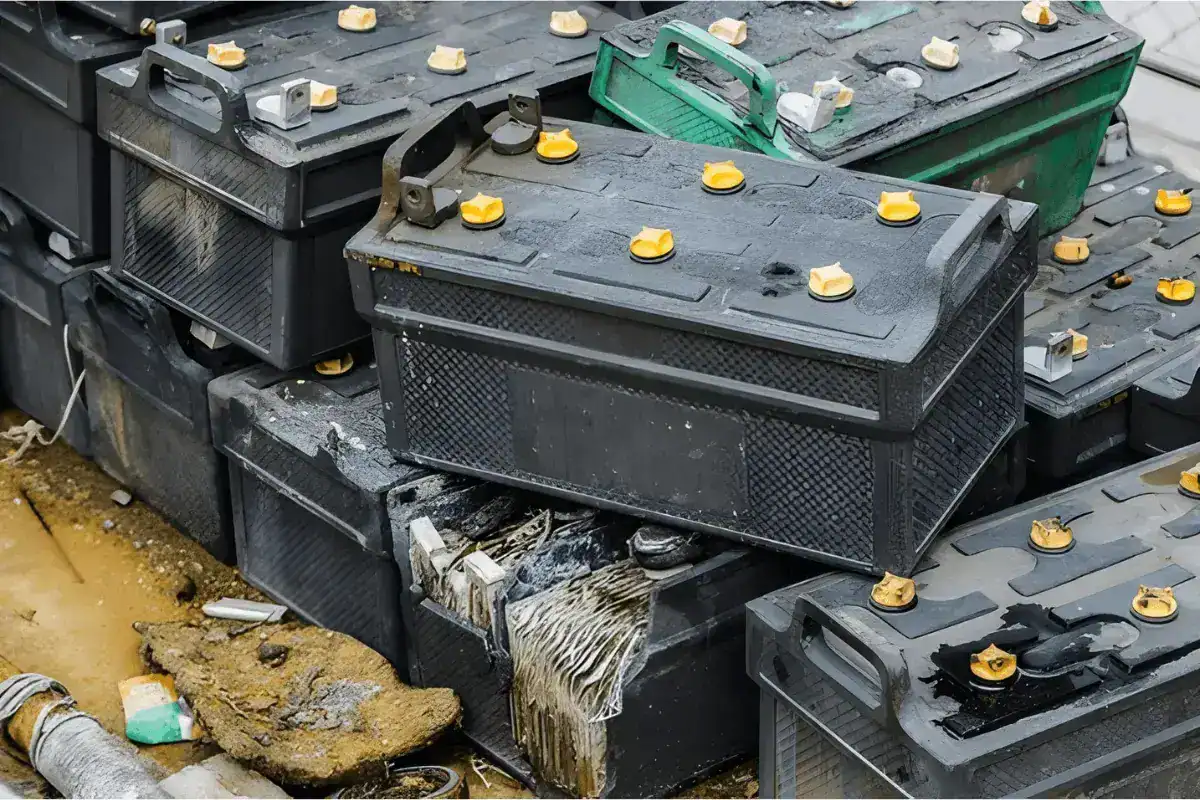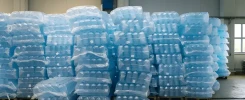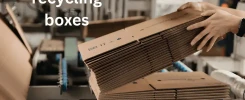Recycling of batteries is significant to the preservation of the environment. Millions of batteries are discarded by people on a daily basis. Such batteries contain toxic substances such as lead, mercury, cadmium and lithium. Otherwise, the materials might leak into the soil and water. This pollution is able to destroy flora, fauna, and mankind.
The future of the world today is a cleaner future. Battery recycling is now included in this change in Dubai. Dubai has been among the leading cities that encourage clean and environmentally friendly waste management. Recycling used batteries will prevent pollution and conserve valuable materials.
Such materials are reusable in the production of new items. This is a process that saves energy and minimizes wastage. Remedying the environment to a clean and safer environment in future by recycling in Dubai is an act that anyone can contribute to in order to save the world.
The Significance of Recycling Battery to a Sustainable Future.
Recycling of batteries is significant to preserve our earth. Each year millions of batteries are discarded by people. These batteries use lead, cadmium and mercury which are toxic materials. These chemicals may leak into the soil and water when they find their way to landfills. This pollution has the potential of damaging people, animals and nature.
By recycling used batteries, some useful metals that can be re-used are obtained. It also decreases the mining of new materials. This conserves power and reduces greenhouse gases. Recycling of batteries will help in a circular economy whereby reuse of the products is made rather than destroying them.
Dubai practices sustainability in its daily life. Recycling of batteries in Dubai contributes towards maintaining the city as clean and green. It avoids pollution, conserves resources and promotes good environment. Recycling of batteries is a way that everyone can contribute towards a safer and more sustainable future.
Battery Recycling: What It Is and Why It is Important.
The process of collecting and reusing old batteries is referred to as battery recycling. The process assists in the retrieving of valuable materials such as lead, lithium, cobalt and nickel. It is possible to use these materials again to create new batteries or other products. This lowers mining of new resources and is also beneficial in conserving the environment.
Re-use of batteries also reduces pollution and conserves natural materials. It prevents the entry of toxic wastes into the ground and the waters. The process reduces the use of energy and contributes to a greener and cleaner planet.
Battery recycling is also one of the major components of waste management in Dubai. The city is regulated in terms of e-waste and safe disposal. Recycling batteries reduces the costs incurred by the people and companies in Dubai in an effort to make the city a clean, safe, and sustainable place in the future.
Battery types that are recyclable.
Various batteries require varying recycling. This is attributed to the fact that each type has its chemical composition. The most common types of batteries that are safely re-usable are listed below.
Lead-Acid Batteries
Among the simplest to recycle are the lead-acid batteries. They are applied in the automobiles, photovoltaic panels, and reserve power. Lead and acid are contained in these batteries and they may pose danger when not handled with care. Lead-acid battery may be reused almost in all its parts. The plastic case is recycled by making it into new containers while the lead is melted.
Lithium-Ion Batteries
Smartphones, laptops, and electric cars are run on lithium-ion batteries. They have precious metals such as cobalt, nickel and lithium. These are metals that can be recycled and refurbished into new batteries. Unless recycled, the batteries may lead to fires or explosion. That is why safe recycling is very important.
Nickel-Cadmium and Alkaline Batteries.
Many household equipment contain nickel- cadmium and alkaline batteries. The metals such as cadmium when recycled could be extracted and re-utilized. This assists in reducing pollution and prevents the environment with harmful wastes.
Battery Recycling: How to Recycle Batteries Safely and Responsibly.
It is easy and significant to recycle the batteries in a safe manner. Anyone is capable of doing it whether at home or in the workplace or within the community. This begins by picking and disposing used batteries in the correct manner.
Recycling a Battery at home or Office with a Battery Recycling Box.
The safe collection can be done with a battery recycling box. It stores used batteries till they are recyclable. The harmful materials are separated by these boxes not to be mixed with normal trash. In Dubai, there are battery recycling bins installed in many houses, offices and buildings. Their use will ensure that the toxic waste does not reach the environment.
Steps for Safe Recycling
Determine the battery type: categorize the batteries into: rechargeable, alkaline, and lead-acid.
Store: Store in a non-metal box/container. This prevents leaks or fire.
Recycle at Recycling Centres: Take batteries to a designated collection receptacle or recycling facility.
Avoid Burning or Burying: Never place batteries in garbage or burn. They can release toxic gases.
Using these steps all people will be able to recycle batteries in the most safe way and contribute to maintaining Dubai clean and green.
The Battery Recycling Process: Battery Recycling Collection-Material Recovery.
The process of battery recycling occurs in a matter of few steps. One step contributes to the safety of people and preserves helpful resources.
Collection and Transportation
Home, office, and recycling box collections are used to retrieve the used batteries. They are consequently transported to special recycling centers. To ensure that this process is comfortable and harmless, there are many collection points and environmental groups, which collaborate in Dubai to facilitate this process.
Sorting and Separation
At the plant, the batteries are classified on the basis of type and material. All types of batteries require a unique way of recycling. Recycling is safer and more efficient with the help of sorting.
Crushing and Material Extraction.
The batteries are then smashed into tiny bits. This process isolates metals, plastics and liquids. Valuable materials such as lead, lithium and cobalt are extracted using modern machines to be reused in the future.
Refining and Reuse
Lastly, the recovered materials are washed up and polished. They are re-used to produce new batteries or electronic products. This decreases mining and preserves the environment.
The Dubai Battery Recycling: Local Community and Sustainability
Dubai has a fast growing battery recycling. It is used in keeping the city clean and green. Safe recycling programs are conducted by the Dubai Municipality, Bee’ah, and Enviroserve to everybody.
Dubai has numerous battery collection points. Individuals have the option of disposing used batteries rather than disposing them on the rubbish bin. These centers ensure that batteries are disposed in a safe manner in order to save the environment.
Another plan pursued by the UAE is the Zero Waste to Landfill. This initiative minimizes wastage and maximizes e-waste recycling at home and workstations.
Participating in these recycling programs all the people in Dubai make the city greener. It is an easy-going method of preserving the nature and having a cleaner future.
Lead Acid Battery Recycling: Retrieval of Valuable Resources.
One of the most effective recycling methods of old batteries is lead-acid battery. The recovery rate with these batteries is very high.
During this process, lead is melted, cleansed and recycled to form new batteries. The plastic containers are torn into pieces and made into new covers or other plastic materials.
This means of recycling keeps the destructive chemicals off the land and water. It also conserves energy which would work in production of new materials.
In Dubai, most of the car service centers recycle lead-acid batteries. They gather the batteries of old cars and ensure that they are disposed and recycled in a safe manner rather than disposing in an irresponsible manner.
The Battery Recycling in E-Waste Management.
A significant component of recycling of e-waste is batteries. Almost every gadget uses one. Recycling of such batteries contributes towards recovering valuable materials and makes the world a safe place.
Metal and plastic are recycled when their processing is done. This renders recycling fast and efficient. The recycling of batteries also contributes to the circular economy of UAE. It encourages environmentally friendly lifestyle and intelligent utilization of resources.
Environmental and Economic Benefits of Battery Recycling
Battery recycling helps the planet and the economy. It reduces waste and protects nature.
Environmental Benefits
- Prevents pollution in soil and water.
- Saves resources like lead, lithium, and nickel.
- Lowers carbon emissions by reducing new mining.
Economic Benefits
- Creates jobs in recycling and production.
- Saves money on raw materials.
- Supports green technology and clean energy growth.
Recycling batteries keeps the earth safe and builds a strong, green economy.
The Negative Impact of Non-Recycled Batteries
Throwing batteries in the trash seriously harms the environment. When batteries go to landfills, they release toxic chemicals like lead, mercury, and cadmium. These dangerous substances can leak into soil and water, putting both wildlife and people at risk.
Not recycling batteries also wastes valuable materials. Mining new metals uses more energy and harms nature. Recycling saves these materials for reuse and supports a clean, green, and sustainable future.
Challenges in Battery Recycling
Battery recycling is very important, but it still faces many problems. Public awareness is low, and collection systems are often limited. Sorting and separating different battery types can be difficult and expensive.
In some places, unsafe recycling causes pollution and health hazards. To fix this, governments and companies must invest in better recycling plants, public education, and reward systems that motivate people to recycle properly.
The Future of Battery Recycling
The future of battery recycling looks bright. New methods like hydrometallurgy and direct recycling help recover materials using less energy. As electric vehicles and renewable energy grow, the demand for efficient recycling of lead-acid and lithium-ion batteries will rise.
Cities such as Dubai are already taking the lead. They are developing smart waste systems and using modern recycling technologies to build cleaner, greener communities.
How Individuals and Businesses Can Contribute
Everyone can help improve battery recycling. At home or work, use a battery recycling box to store used batteries safely. Businesses can partner with certified recyclers or join e-waste collection programs to handle their waste responsibly.
Schools and communities can raise awareness about safe recycling. Even simple actions—like keeping batteries out of household trash—can make a big difference for the environment.
FAQs About Battery Recycling
Q1. What types of batteries can be recycled?
Almost all types can be recycled, including lead-acid, lithium-ion, alkaline, and nickel-cadmium batteries.
Q2. How can I recycle batteries in Dubai?
Drop your used batteries in recycling bins at malls, offices, or environmental centers. Companies such as Bee’ah and Enviroserve also collect them.
Q3. What is a battery recycling box?
It’s a safe container used to collect and store used batteries before they are sent to recycling centers.
Q4. Why is lead-acid battery recycling important?
Because lead is highly toxic. Recycling prevents pollution and allows valuable materials to be reused safely.
Q5. How does battery recycling help with e-waste recycling?
It ensures metals and other components are recovered with other electronic materials, reducing waste and saving energy.
Final Thoughts
Battery recycling is a simple way to protect our planet. At Green Colour Code, we make recycling easy and effective for everyone. Each recycled battery helps reduce waste, save energy, and prevent pollution.
Using battery recycling boxes at home or work keeps harmful materials out of the environment. It also helps recover valuable metals that can be reused. Supporting battery recycling in Dubai is not just good for nature—it strengthens the local economy too.Every small action matters. When we recycle together, we build a cleaner and safer world. With Green Colour Code, you join a growing movement for a greener, more sustainable future.



